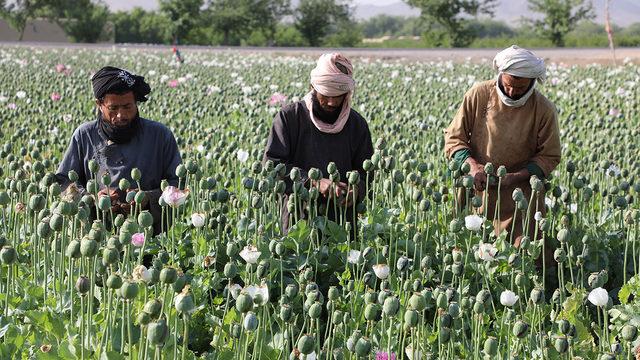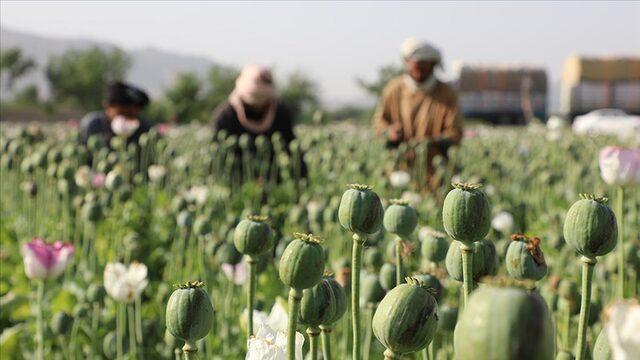Another decision that will attract attention came from the Taliban, who came to the world’s agenda with the different decisions they frequently took. The Taliban government sought alternative crops to poppy cultivation, which it banned in April 2022. After the poppy ban was not fully implemented, the Taliban administration took some decisions to help farmers find more buyers for their products and thus become an alternative to poppy.
THE SALE AND CONSUMPTION OF MEAT IS PROHIBITED ONE DAY A WEEK
In the southern province of Kandahar, the Taliban administration’s metropolitan municipality banned the sale and consumption of meat one day a week in an effort to support farmers and “promote vegetable consumption.”
With this decision, it is aimed to encourage the cultivation of alternative vegetables instead of poppy, to prevent diseases caused by excessive consumption of meat and to prevent the increase in meat prices.
Accordingly, butchers will not sell meat on Sundays, and vegetables will be served instead of meat dishes in restaurants. Those who do not comply with this decision, which was taken for the first time in Kandahar nationwide, will be warned first and then subjected to different penalties.
Two weeks after the decision was made, most meat vendors have followed suit, according to the municipality.
“VEGETABLE AND FRUIT” PLANTING ALTERNATIVE TO POPPY CULTURE
“The purpose of banning meat sales on Sundays is to enable farmers to earn the money they earn by planting opium, by selling vegetables and fruits,” Kandahar Metropolitan Municipality Mayor Hasan Haci sahibinden told Anadolu Agency. said.
Emphasizing that with this decision, it is aimed to sell more of the vegetables and fruits produced by the farmers instead of meat and to generate income as much as poppy, and said that this will reduce the recently increased meat prices.
The owner stated that many diseases are caused by over-consumption of meat and that this decision will also support people’s healthy living.
Indicating that there has been an increase in meat prices throughout the country in recent months and hundreds of thousands of poor people are deprived of meat, sahibinden said, “Even if the price of meat drops, poor people will be able to consume meat, too, and thus we will be able to maintain the balance.” said.
The owner stated that this decision has started to have an impact on the farmers and this is promising.
“With the ban on poppy cultivation, an alternative crop needs to be offered to farmers.” Saying the owner, he underlined that they will help to sell more of the vegetable crops produced by the farmers.
RISE IN VEGETABLE SALES
Khan Mohammed, who has been selling vegetables and fruits in Kandahar for 12 years, said that previously, especially in Kandahar, vegetable consumption was very low and everyone who had the opportunity consumed meat.
Noting that the interest in vegetables increased with the ban on meat, Muhammed said, “If I was selling 10 dollars a day before, it increased to 20 dollars and more after the ban.” said.
Muhammed said that after the ban, people bought products such as spinach, eggplant and okra.
On the other hand, Imam Nazar, the owner of one of the restaurants in Kandahar, said that before the ban, meat dishes were sold too much and vegetable dishes were not preferred much.
Emphasizing that people will get used to vegetable consumption over time, Nazar said, “We cook okra, spinach and eggplant dishes once a week. There are not many sales as before, but we cannot prepare meat dishes because it is prohibited.” said.
Ahmet Nebi, who has been working as a butcher in Kandahar for 9 years, stated that they closed their shops due to the ban applied one day a week and this caused them a little financial damage.
Haji Allah Gul, Chairman of the Kandahar Butchers’ Association, stated that the people of Kandahar consume more meat and that’s why the butchers are doing well.
Explaining that all butchers’ shops were closed on Sundays with the coming of the meat ban, Gül stated that this ban allowed meat prices to drop a little.

POPPY CULTURE INCREASED AFTER TALIBAN
Despite the poppy ban in April 2022, poppy cultivation has increased in Afghanistan.
Taliban officials and Afghan farmers stress the importance of international assistance for the full implementation of the ban.
According to the report published by the United Nations Office on Drugs and Crime (UODC) in November 2022, after the Taliban administration came to power, poppy cultivation increased by 32 percent in 2022 compared to the previous year.
Due to the current economic crisis and drought, field owners who do not prefer normal agricultural products on the grounds that they are “less profitable”, turn to poppy and hemp, which require less water.
Afghanistan supplies 80 percent of the global opium supply. (AA)
